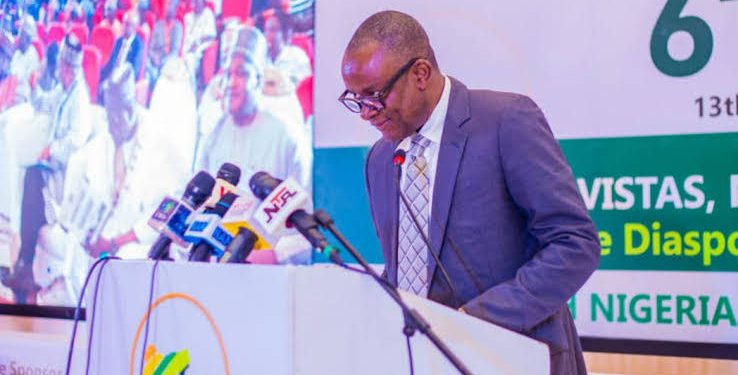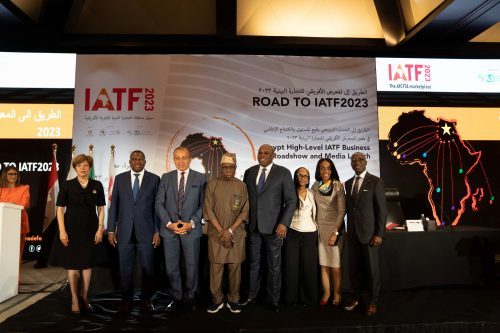Nigeria is setting the stage for a major shift in West Africa’s industrial future, as the Federal Government has committed to implementing the new National Industrial Policy in partnership with key manufacturing stakeholders. This renewed push will take centre stage at the West Africa Industrialisation, Manufacturing & Trade Summit and Exhibition 2025, scheduled to hold in Lagos this October.
Speaking at a press conference in Lagos, the Minister of State for Industry announced that Nigeria is determined to build its industrial agenda on previous executive orders that promoted local content, but with greater focus through the “Nigeria First” policy. He explained that earlier policies sought to encourage the use of Nigerian-made goods in public procurement, yet the new approach will be broader, designed to shift both government and consumer behaviour towards stronger patronage of locally produced goods and services.
The Minister disclosed that the Ministry of Industry, Trade and Investment will roll out a nationwide campaign in the coming months to encourage citizens to embrace locally made products. According to him, if Nigerians fully adopt the “Nigeria First” campaign, the country could generate about N3 trillion in the short term, while also strengthening industries and creating new opportunities for entrepreneurs and workers.
He acknowledged that Nigeria’s economy still faces challenges, particularly with foreign direct investment inflows, but stressed that reforms such as the harmonisation of exchange rates were beginning to stabilise the system. He emphasised that consistency and long-term commitment would be crucial in ensuring meaningful gains for the economy and in positioning the country as a driver of regional growth.
Looking ahead to the October Summit, the Minister described the event as a platform for accelerating Africa’s journey towards true industrialisation. He noted that the continent has for too long depended on the export of raw materials, limiting its ability to fully harness its industrial and manufacturing capacity. He highlighted the urgent need to scale MSMEs, unlock industrial resources, and drive regional economic prosperity through sustainable manufacturing and trade integration.
The organisers of the Summit, dmg Nigeria Events, also stressed the importance of the gathering. They said the 2025 edition, themed “Accelerating West Africa’s Sustainable Industrial Revolution for Economic Prosperity,” would unite policymakers, investors, and industry leaders to tackle key issues such as industrial policy, infrastructure, access to finance, regional trade, technology, and logistics.
The event will be hosted at the Landmark Centre in Lagos and will bring together stakeholders from energy, finance, manufacturing, infrastructure, technology, security, and logistics. The organisers emphasised that the Summit goes beyond being an industry meeting, describing it as a defining moment for West Africa’s growth story. They explained that the decisions taken around industrialisation, trade, and technology at this forum would have long-lasting effects on the region’s ability to compete globally and achieve economic prosperity.
With Nigeria’s “Nigeria First” policy at the centre of discussions and West Africa’s leaders converging in Lagos, the Summit is expected to set a bold agenda for scaling industries, empowering small and medium enterprises, and reshaping the region’s economic future.










